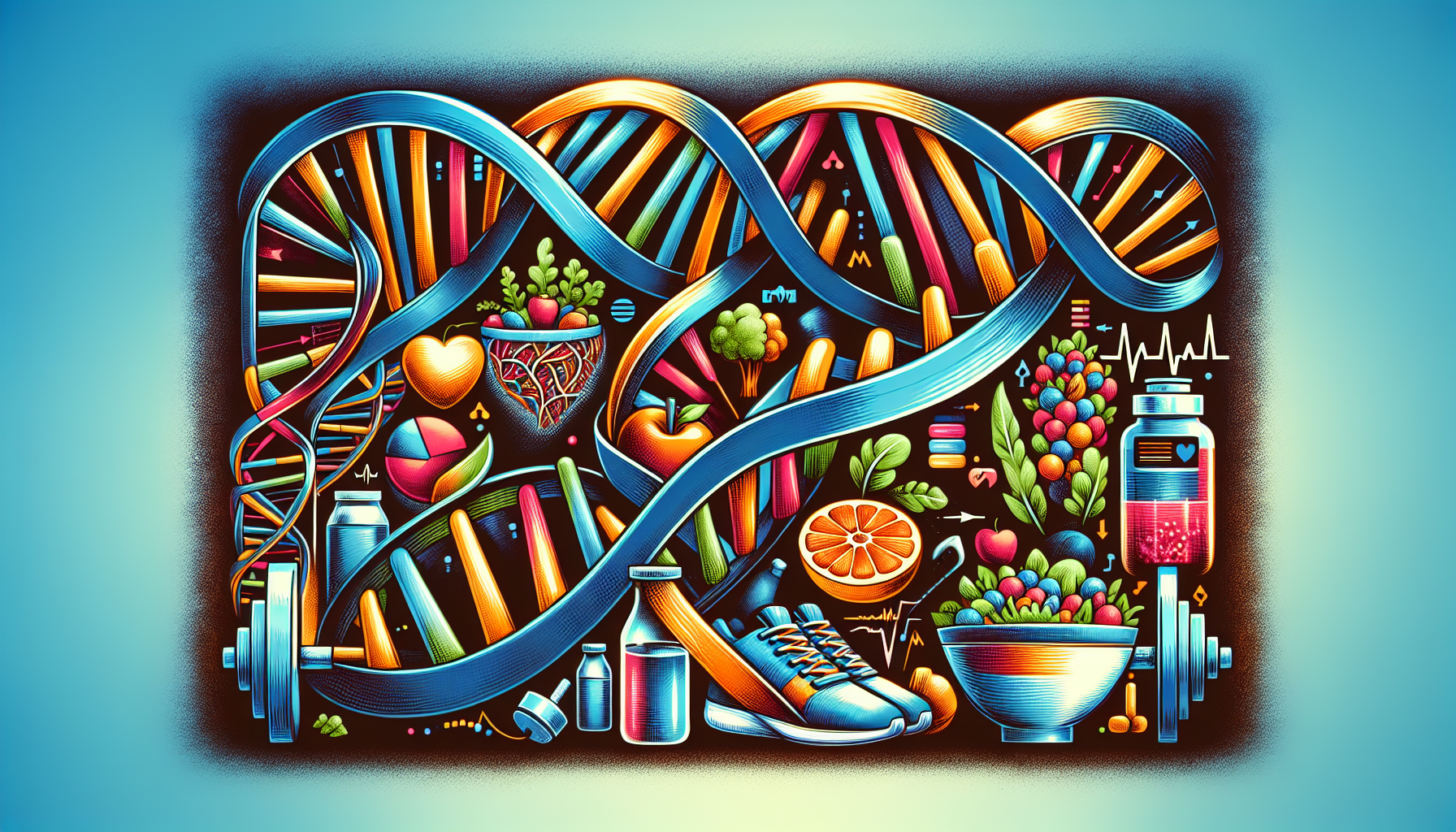Genetics plays a crucial role in shaping our fitness potential and responses to personal training. Understanding this connection can empower individuals to tailor their fitness strategies for optimal results. This article explores the depth of this connection and offers insights into how to work with genetic predispositions to achieve personal health and fitness goals.
The Genetic Blueprint of Fitness
Each person’s DNA contains information that influences various aspects of their physical capabilities, from muscle composition to metabolic rate. It’s the genetic variations in our DNA that contribute to the differences in our abilities to gain muscle, lose fat, maintain cardiovascular health, and respond to different types of training. For instance, a study published in the Journal of Applied Physiology revealed that specific gene variants are associated with athletic performance, particularly in endurance sports.
Moreover, genetics can determine how susceptible we are to certain injuries, which is critical information for personal trainers designing safe and effective workout regimens. A related article on Overcoming Common Fitness Injuries offers valuable insights into injury prevention and management, a key consideration for those with genetic predispositions to musculoskeletal issues.
Genetic Testing and Fitness
Advancements in genetic testing have made it possible to gain insights into one’s genetic fitness profile. Companies offer tests that can inform you about your genetic advantage in terms of power or endurance sports, predisposition to injuries, metabolic rate, and even how you might react to certain foods. This information can be a game-changer for personal trainers and clients alike, allowing for highly personalized fitness plans. For more on crafting tailored fitness strategies, consider reading Creating a Personalized Fitness Plan.
Genes Versus Environment
While genetics lay the foundation, it’s important to recognize that lifestyle and environment also play significant roles in fitness. Epigenetics, the study of how behaviors and environment can cause changes that affect the way genes work, is a growing field that underscores the dynamic interplay between our genes and our choices. Engaging in regular physical activity, eating a healthy diet, and getting adequate sleep can positively influence how our genes express themselves.
To understand how diet can support fitness goals, refer to The Role of Nutrition in Fitness Success, which underscores the importance of a well-rounded diet in achieving and maintaining peak physical condition.
Genetics in Personal Training
Personal trainers can use genetic information to guide their clients on a path that is more aligned with their natural strengths. For instance, someone with genetic markers for endurance might excel in sports like long-distance running or cycling, while those with a genetic predisposition for power might find more success in sprinting or weightlifting.
Customized Workouts
Workouts can be customized based on genetic information to optimize results. For example, an individual with a genetic makeup that favors fast-twitch muscle fibers can benefit from high-intensity, explosive exercises, whereas someone with slow-twitch dominance might achieve better results with endurance-focused training.
Recovery and Genetics
Genetics also influences recovery time and processes following exercise. Some individuals may require longer periods of rest between sessions to avoid overtraining, which is another aspect where genetic insights can be beneficial. A comprehensive resource on this topic is found in the European Journal of Applied Physiology, highlighting the genetic factors affecting recovery.
Supplements and Genetics
Certain genetic variants can affect how the body processes vitamins and nutrients, which is crucial for personal trainers to consider when recommending supplements. An understanding of a client’s genetic predispositions can lead to more effective supplement strategies, aligning with their unique needs. For more on this, explore Medication & Supplements for guidance on integrating supplements into fitness regimens responsibly.
External Resources on Genetics and Fitness
- The National Institute of Health’s database provides a wealth of information on genetic variants related to physical fitness and health.
- The American College of Sports Medicine offers guidelines on how genetics can be incorporated into exercise prescription and personal training.
- A detailed analysis of the role of genetics in muscle hypertrophy and athletic performance can be found in a research paper from the Journal of Strength and Conditioning Research.
Leveraging Genetic Information
Understanding one’s genetic makeup should not be a limiting factor but rather a tool to help tailor fitness goals and expectations. While genetics can predispose us to certain traits, our environment, behavior, and training choices play a significant role in our overall fitness.
Overcoming Genetic Limitations
Not everyone is born with the genetic makeup of an elite athlete, but that doesn’t mean personal fitness goals are out of reach. Training, determination, and a positive mindset are powerful forces that can help overcome genetic limitations.
The Future of Genetics in Fitness
As research continues to unfold, the future of genetics in fitness looks promising. With more personalized approaches to health and exercise, individuals can optimize their training and lifestyle choices for better health outcomes. The intersection of genetics and personal training is just beginning to reveal its potential, and the implications for personalized healthcare and fitness are immense.
In conclusion, the role of genetics in fitness and personal training is a complex yet fascinating subject that offers the possibility of highly individualized health and fitness guidance. By embracing the scientific advancements in genetic testing and understanding, both personal trainers and fitness enthusiasts can unlock their true potential and achieve their personal best.



